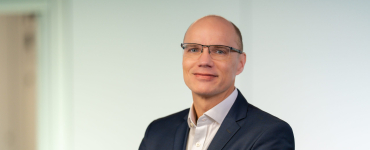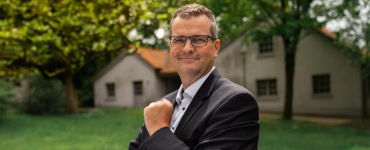German Federal Minister for the Environment Svenja Schulze recently presented her plans for increasing the energy and resource efficiency of digital infrastructures. Dr. Béla Waldhauser, spokesperson of the Alliance for the Strengthening of Digital Infrastructures in Germany, founded under the umbrella of the eco Association, advocates a holistic view of digital infrastructures, as they contribute significantly to achieving the European climate targets, and they ensure energy-efficient use of digital applications.
How does the Alliance for the Strengthening of Digital Infrastructures assess the plans of Federal Environment Minister Svenja Schulze?
Dr. Béla Waldhauser: Digitalisation and sustainability are two sides of the same coin, which is why this topic has been relevant to our industry for many years. We also support the Federal Ministry of the Environment’s call for rapid broadband rollout and the timely switch from 3G to the often more energy-efficient 5G. It is also to be welcomed that politicians have apparently finally recognised the positive effects of heat recovery in data centres.
When it comes to sustainability, it must be made clear that digitalisation is not part of the problem, but part of the solution. Thus, the potential of digitalisation should always be taken into account in order to make the climate goals achievable in the future through sustainable digitalisation.
As representatives of the Alliance, we believe that taking an analysis of video streaming as a case study of digital potential, and to draw conclusions from this analysis for necessary measures to be taken with regard to an entire sector – a sector with immense innovation potential, also for climate protection – is an inappropriate course of action.
What political steps must be taken to achieve this?
If the goal is indeed to enable the climate-neutral operation of data centres by 2030, the energy transition in Germany must also be accelerated accordingly. We then need a much higher share of energy from renewable sources on the market. However, the coal phase-out, which is not planned until 2038, runs counter to this ambitious goal. A faster, politically controlled coal phase-out in Germany could lead to a much greater reduction in CO2 emissions from data centres in Western Europe.
When it comes to heat recovery, policymakers – by imposing corresponding purchase obligations on heating network operators – must also ensure that local data centres also have the option of feeding their waste heat into the local or district heating network. In many cases, network operators are currently still preventing this because it simply does not seem attractive enough. To ensure that the waste heat from data centres can be used sensibly in the future, holistic concepts must be developed jointly.
How active are the operators themselves on the subject of sustainability?
Operators of digital infrastructures have been committed to greater sustainability for many years, and data centres in Germany are already among the most energy-efficient in international comparison. This is also shown in a Study by the Borderstep Institute commissioned by the eco Association for the Alliance for the Strengthening of Digital Infrastructures, and supported by the Vodafone Institute.
Together with research, politics and industry, we should now develop pathways for energy-efficient and resource-conserving digitalisation. An alliance of social, economic and governmental actors, which was initiated by the German Federal Minister of Economics, Peter Altmaier, and which stands for both climate neutrality and economic prosperity, is therefore a positive signal on this path. Only together can we achieve the energy transition and reach the climate targets. This is why our Alliance for the Strengthening of Digital Infrastructures would also like to participate in the dialogue on energy-efficient digitalisation.




